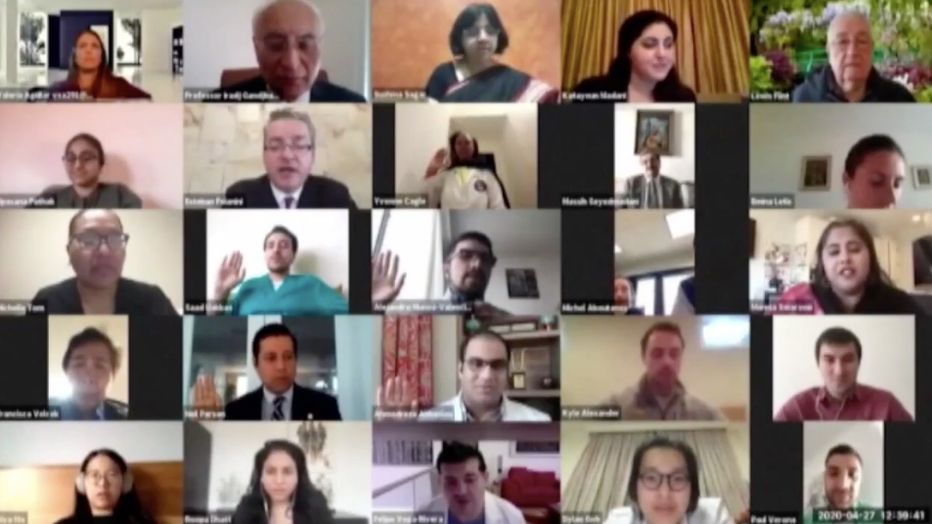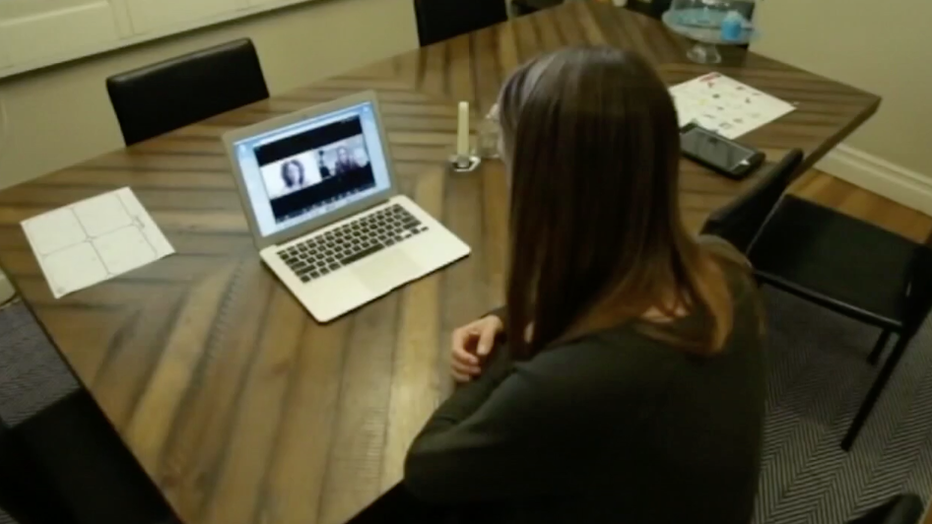'Zoom fatigue:' Professor notes 4 reasons why it exhausts us

‘Zoom fatigue:’ Professor notes 4 reasons why it exhausts us
Whether it's a phone call, meeting or distance learning, video chatting and conferencing have been so popular during the pandemic. It’s leaving some folks feeling anxious and tired.
STANFORD, Calif. - Whether it's a phone call, meeting or distance learning, video chatting and conferencing have been so popular during the coronavirus pandemic, but while there are lots of advantages, so much Zoom is leaving some feeling anxious and tired.
Bellied up to the computer or continuously gazing into the phone while video-calling allows us to connect, but it could be having an impact on our health.
"Afterwards, we can feel sometimes more tired than we expect," Professor Jeff Hancock said.
FREE DOWNLOAD: Get breaking news alerts in the FOX6 News app for iOS or Android
Hancock helped research and identify four consequences of prolonged video chats that he says contribute to the feeling called "Zoom fatigue."

Professor Jeff Hancock
"We look at social, emotional, physical and a general sense of exhaustion or fatigue after Zoom meetings," Hancock said, concluding it happens for several different reasons.
1) Excessive amounts of close-up eye contact is highly intense.
"The amount of eye contact, as well as the size of faces on screens, is unnatural," he said.
2) Seeing yourself during video chats constantly in real-time is fatiguing. It's almost like a mirror.

"It can be really distracting, and getting us to focus on image and our appearance much more than usual," he said.
3) Video chats dramatically reduce our usual mobility.
"I can't move around very much. I have to sit in the frame," Hancock said.
4) The cognitive load is much higher in video chats.
"It's hard to tell who should talk. We have to think about that now, whereas in face-to-face, it’s a no-brainer," he said.
Hancock suggested a few easy fixes.

"You can click on your own self-view and make it go away, and now, you are not looking at yourself all of the time," he said. "It's good to move back a little more in the frame of view. That way, you can move around a little more, and also, then I’m not in your personal space as much."
Taking breaks for just audio or minimizing the screen may help manage the issue -- as we may be dialed in for a while longer.
Hancock helped develop a scale to measure "Zoom fatigue" that can help you make changes, improvements and reduce long-term negative effects. If you’d like to read more about it, visit their website.

